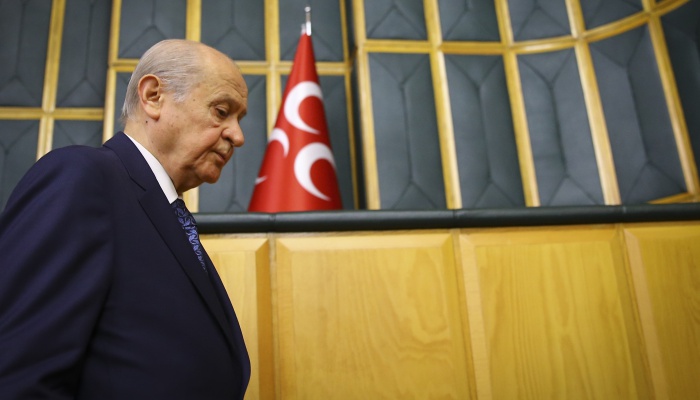Turkish President and ruling Justice and Development Party (AKP) Chairman Recep Tayyip Erdoğan and his former election ally, Nationalist Movement Party (MHP) Chairman Devlet Bahçeli, announced on Tuesday that they would not form an alliance for local elections in March 2019.
Statements from the leaders came after the two sides disagreed on an amnesty proposal by the MHP and a decision by the Council of State to reinstate a daily pledge of “Turkishness” at schools.
“As of today, no intention, no seeking and no expectation for any election alliance for the March 31, 2019 local elections is left for the MHP,” Bahçeli said during his party group meeting at parliament in Ankara.
“I am underlining that no alliance can continue by rejecting one side, forcing it to step back, neglecting its existence and ignoring its thesis and proposals,” added Bahçeli, after mentioning his uneasiness over the AKP and Erdoğan’s opposition to amnesty for thousands of prisoners and reinstatement of the pledge of Turkishness at schools.
Bahçeli repeated that they would stand behind their proposal of amnesty in parliament.
An hour after Bahçeli spoke, Erdoğan confirmed that the parties would not form an alliance in the local elections: “If they say they will go their way in the local elections, then we say that everybody will go its own way.”
Repeating his opposition to an amnesty that was proposed by the MHP and reinstatement of the pledge of Turkishness in schools, Erdoğan said he would continue to support the Public Alliance that was set up with the MHP for the June 24 presidential and parliamentary elections.
Erdoğan’s AKP needs the support of the MHP in parliament to constitute a majority.
The Turkish president also said there was no meeting with Bahçeli on his agenda but that there was no obstacle for it to take place, either.
The MHP, allied with the AKP, performed surprisingly well in the general election on June 24, as it garnered 11.1 percent of the vote and secured 49 seats in parliament.
The party supported President Erdoğan in his presidential bid and provided him a first round win with more than 52 percent of the vote.

